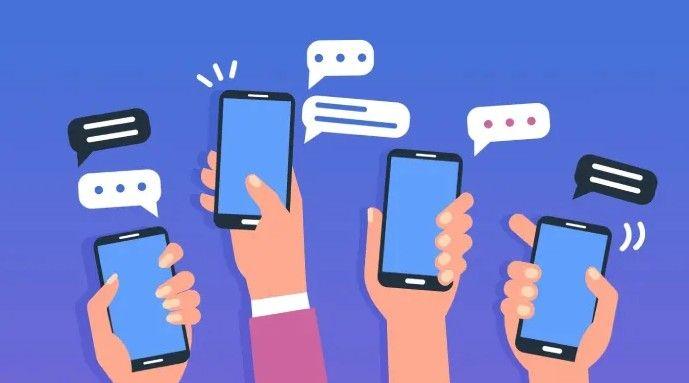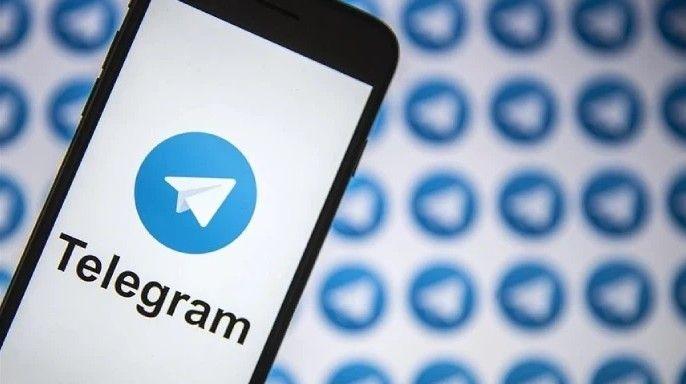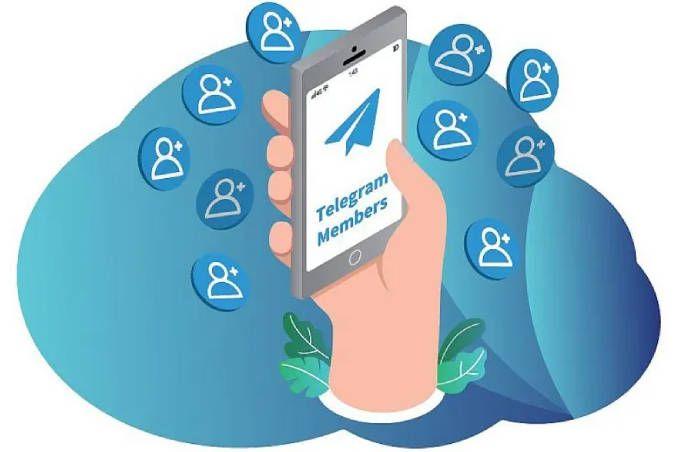8 Techniques to Keep Remote Employees Engaged

LIKE.TG 成立于2020年,总部位于马来西亚,是首家汇集全球互联网产品,提供一站式软件产品解决方案的综合性品牌。唯一官方网站:www.like.tg
Five years ago, there were a few companies that offered at-home work, but they were rare. If you could find work as a home-based employee, you were incredibly lucky—and if you were an employer who offered at-home work—well, you were incredibly generous!
Times have changed—and changed abruptly—and remote work is quickly becoming the norm. With that sudden change in the work environment comes entirely new management challenges (as if the old challenges weren’t difficult enough!).
One of those challenges is employee engagement for remote workers. How on earth do you keep employees, working from home, spread out all over the nation, engaged with each other and the jobs they’re doing?
Here are eight strategies you can use to increase remote employee engagement, and keep your currently-engaged employees interested, committed, and productive.
We'll start with the one that sounds a bit hokey, but can be a lot of fun—especially if you have an employee who loves to emcee and run the show:
Build Camaraderie Through Get-to-Know-You Games
The managerial challenge of having remote employees is creating an in-office camaraderie... without the benefit of an "in-office" environment. There's a sort of professional togetherness that "just happens" in an office, and recreating it between a dozen or more remote teammates is no easy feat.
It's even more difficult when onboarding new team members for remote work—and even more difficult when a new employee comes into a team that already knows each other.
There are ways to jumpstart that interpersonal connection, though, and a great way is through weekly check-in sessions where work issues are *not allowed* to be discussed.
That can be tricky to do, and it can be difficult to get people chatting, but people will do so if they have a game to play. One such game is "Two Truths and a Lie" game. Each participant shares two interesting things about himself/herself, along with one lie.
Here's an example. Let's say you work with legendary actor and all-around great-guy Paul Rudd. Paul might share the following:
- "I have a star on the Hollywood Walk of Fame" (truth)
- "I was a bar mitzvah DJ while I attended acting school" (truth)
- "I played point guard on the Boston Celtics basketball team in their championship 2008 season” (lie).
The game usually lets the group discuss the person's two truths, and it's a great way for everyone to get chatting and develop a kinship. Sometimes employees feel a bit shy at first, but usually get into it a while—after all, everyone has a few interesting experiences they can share.
You can do this before or after team meetings, and it doesn't have to take long—a fifteen-minute session, with laptop cameras on, should do it—and while it may not make everyone best friends, it will absolutely bring people together and give them something to joke about in the literally thousands of emails they'll send to each other all day long.
Keep in Touch with Alumni and Have "Alumni Reach-Outs"
"Alumni" is a "buzzy" word right now, but the concept of work alumni—or "boomerang employees"—is really powerful. Here's how it shakes out:
Boomers tended to find a company, work there for 40 years, and then retire. It was a pleasant, time-honored progression that is (perhaps unfortunately) long gone. Current generations get a job, dive in, and then... bounce around for 40 years! Corporate loyalty—both from companies and employees—is a thing of the past.
The idea of "work alumni" is that somewhere in that bouncing, they'll bring their increased skill set back to your company and teach newer hires. In other words, you’ll get your favorite employees working for you again.
So what's the best way to create an alumni squad that wants to return to your company and/or team? First and foremost—create a company and/or team that people want to return to!
Once they do leave, the next step is to keep in touch with them. Send them little reminders that you appreciated their work, and that they always have the option of returning. If you really want to keep them engaged, invite them to your Camaraderie Sessions or team meetings where you play Two Truths and a Lie!
The trick is to be on their minds the next time they opt for a new professional career. If you can do that—and create a work environment that they remember fondly—you may find yourself with boomerang employees who bring their engagement with them.
Give Spot Bonuses at Random Times
Social scientists love to study addictive behaviors, not only because their insights on the topic could help millions of people, but because the concept of "reward" is central to psychology.
In the case of gamblers, researchers stumbled upon a fascinating principle they termed the "variable-ratio schedule." It gets complicated, but the main idea of variable-ratio schedules is that people respond very strong not to scheduled reinforcement, but to random reinforcement. Ever wonder why a person can sit in front of a slot machine for eight hours and lose money, instead of working a job for eight hours and making money? Variable-schedule reinforcement has something to do with that.
So how can this help you get your remote employees motivated? Reward them for work well-done—but also reward them at times when they may not expect it. A random, spot-gift of a $25 Amazon card or—even better—a gift certificate to a store you know they like—can be the kind of unexpected perk that really resonates.
This flies in the face of everything we, as leaders, have learned about merit-based performance. The rules we have lived by for many years say that in order to receive some sort of bonus, an employee must first accomplish a given goal, meet a specific due date, or attain a certain benchmark.
But the new rules of remote employee engagement are a brave new world! The “Spot Bonus at Random Times” technique encourages you to forget all that, and see what happens when you reward employees just for doing what they're supposed to do.
After all—bad surprises are bad, but good surprises are wonderful!
Here's another idea related to spot-bonuses:
Give "Vacation Raises" Instead of Monetary Ones
This can be a difficult topic to address, because no one wants to admit that raises... well, they aren't what they used to be. Previous generations of American workers had a pretty easy professional journey, and they expected promotions and raises, and that's really all they needed (and that's why older professionals are often confused by discussions about employee engagement, such as this one!).
For modern companies, though, raises are not as easy to come by—and that's not always their fault. Corporate budgets are small, and company shareholders often expect very large returns on their investments, and it's just a sad fact that managers simply don't have the option of providing raises the way they did in years past.
When you also consider that work-from-home employees today see leaving for new companies as an easier path to promotion, it's no mystery why raises are more complicated than they used to be.
So money for raises can be difficult to come by, but here's something that's relatively easy to come by: time.
Like some kind of god, you can give your employees and team members the ephemeral gift of time, and chances are very strong they will absolutely love you for it.
Does that sound crazy? Here's an article in Inc. describing how 20% of employees would rather add five more vacation days to their calendar than receive a 10% pay raise.
Here's the kicker: studies have shown that employees with generous time-off packages are actually more productive than employees with less-generous time-off packages.
So, why not? Give it a shot—it won't cost you anything!
Assign Novel Short-Term Projects (Key Word: "Novel")
Many jobs—even creative ones!—fall into a routine eventually. The same workflow, with the same clients, on the same days of the week—even those of us who love habitual activities get tired of the same thing, day-in, day-out, and day-in again.
So mix it up! Assign not only new projects, but new types of projects. For an editor, it might be selecting artwork; for a marketing team member, it might be sales outreach; for an admin, it might be project work. Identify the goals you need to meet, and recruit new people for the task. Not only does learning new tasks feel good (thereby creating remote engagement), you might find that someone on your team has a hidden talent you didn't know about.
The keys here are novelty (the new activity needs to be a genuinely new task) and brevity (that task must be impermanent and time-limited). Try to avoid challenges that are too taxing—after all, the goal is increased engagement, so that should be the focus.
The other trick, of course, is to refrain from overburdening an already-busy team member, but it can help if that task is important to the employee—and that's where you, as a leader, can make a difference. Listen to his/her complaints, aspirations, and ideas, and try to pair him/her with a task that is meaningful. If you can get your employees working on new tasks, everyone wins.
And with that goal of getting to know your employees in mind, that brings us to our next technique:
Give Hyper-Targeted Gifts
Personal, thoughtful gifts make employees feel seen, valued, and understood. If you can provide exactly what someone needs—and exactly when they need it—you'll have a happy, engaged employee, and that’s especially true for work-from-home employees.
For example: if an employee has a child with a big event coming up on a weekend—a birthday party, or a religious ceremony, or a school play, or something like that—letting them log off two or three hours early on a Friday to finish event-related tasks can be hugely beneficial, and something they won't forget.
There's one important factor to remember, however: if you're going to adopt a strategy of gift-giving, it is VERY important that you apply it evenly and provide random gifts (at different times) to everyone on your team. If gifts are given to the same employees again and again, a "favoritism" factor emerges, and that actually acts as a demotivator.
The gifts don't have to be huge—in fact, smaller gifts seem to work as well as big ones—but they need to be personal and well-timed in order to make employees feel seen and heard. Let's say a team member complains in a team meeting that their apartment is always drafty—you can send a sweatshirt (with the company logo, of course) to help.
Obviously, you'll want to check with your HR department to see if gift-giving fits within your company’s by-laws, but personal, thoughtful gifts can mean the world to your team members.
Other than that, embrace your inner Santa and gift away!
With gifts in mind, you may also want to embrace the next strategy, which is to...
Embrace "Freebie Culture”
Managers are often surprised at how well freebies can work, but the great majority of people LOVE free stuff. It doesn't even matter what it is, sometimes—as long as it's free, people are up for it.
In fact, if your company is one where people apply because they love your product—think brewery, clothing label, ice creamery, etc.—giving freebies to team members can be seen not as a tactic, but as a necessity.
So whatever it is that your company produces, figure out a way to bequeath it to your employees. If your company is an information-based company, freebies can be a little more challenging, but if you don't have any ideas, ask your employees! They probably have some great ideas on free stuff they could use.
With all this talk of freebies, and raises, and increased vacation days, we should probably address our list tip:
Always Realize That the Best Motivator Is...
You know what it is. It's money! When all else fails... pay them more. There's no way to create engagement than to buy it!
Hopefully, there's something here that can help you—good luck, have fun, and enjoy your team's engagement!
AboutAuthor: Matthew Burke runs Rough and Tumble Gentleman [roughandtumblegentleman.com], a website devoted to beard care and beard products. He manages 11 full-time remote employees, has fully embraced freebie culture by giving away beard oil and beard balms whenever possible, and loves giving (and getting!) hyper-targeted gifts.

LIKE.TG 专注全球社交流量推广,致力于为全球出海企业提供有关的私域营销获客、国际电商、全球客服、金融支持等最新资讯和实用工具。免费领取【WhatsApp、LINE、Telegram、Twitter、ZALO】等云控系统试用;点击【联系客服】 ,或关注【LIKE.TG出海指南频道】、【LIKE.TG生态链-全球资源互联社区】了解更多最新资讯
本文由LIKE.TG编辑部转载自互联网并编辑,如有侵权影响,请联系官方客服,将为您妥善处理。
This article is republished from public internet and edited by the LIKE.TG editorial department. If there is any infringement, please contact our official customer service for proper handling.


















